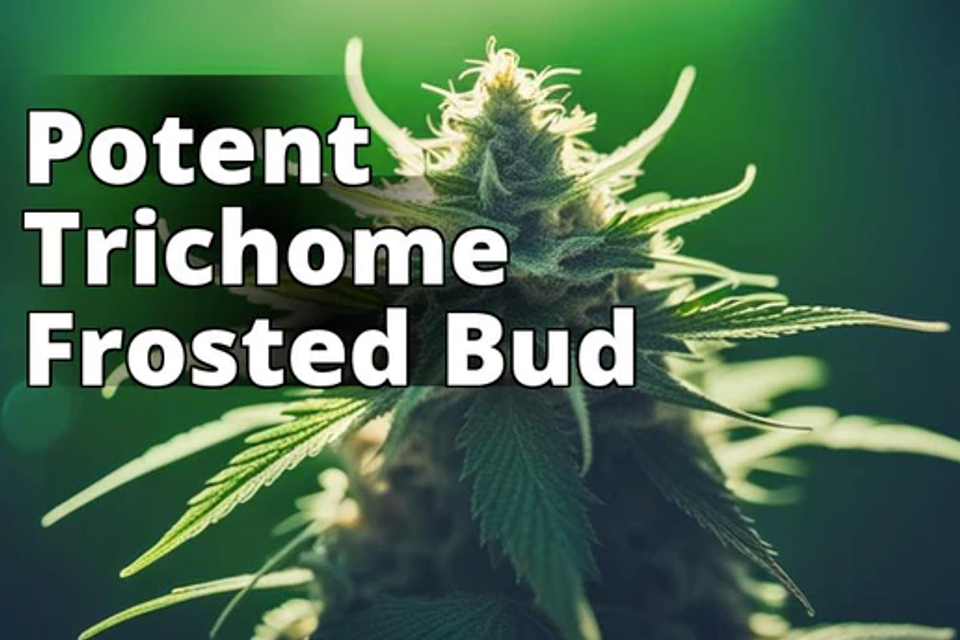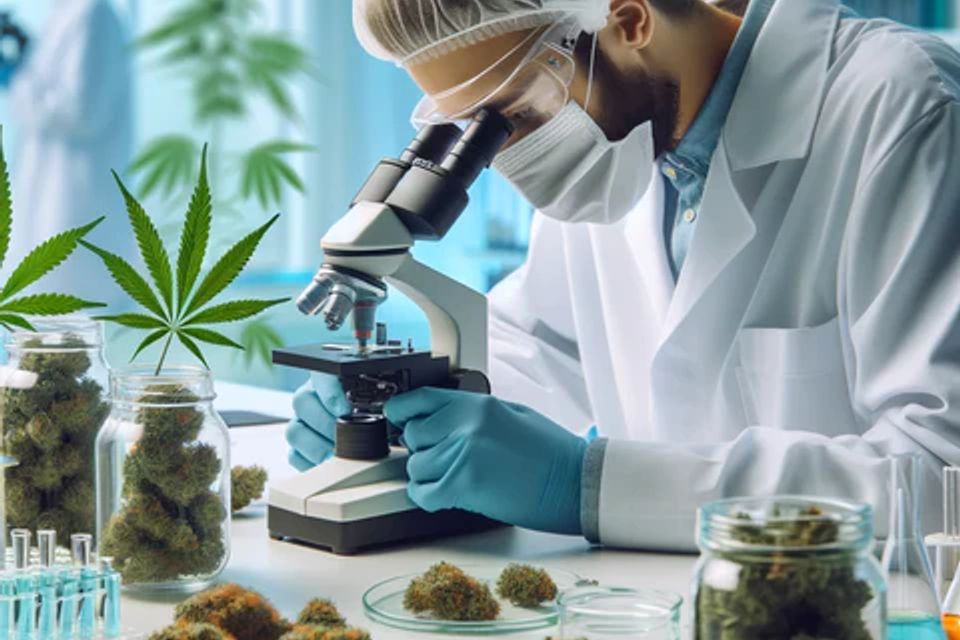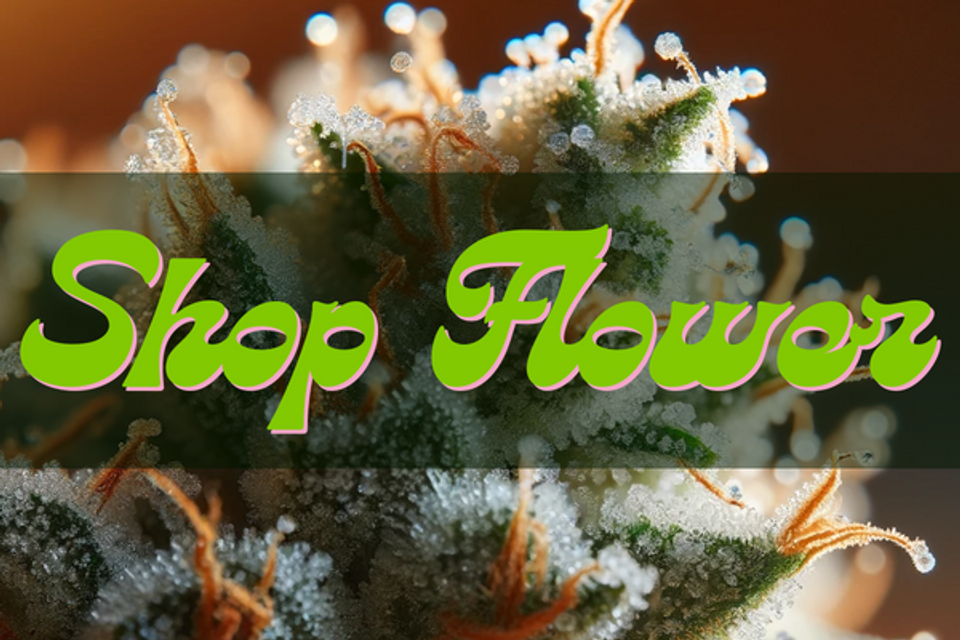
If you're a cannabis enthusiast, you might have come across the term THCa, which is a non-psychoactive compound found in cannabis plants. But can consuming THCa flower get you high? Let's explore the properties of THCa, its differences from THC, and whether it can produce euphoric effects.
Can THCa Flower Get You High?
By reading this article, you will learn:
- The differences between THCA and THC and why THCA is non-psychoactive in its raw form
- The potential health benefits of consuming THCA
- The different ways to consume THCA and legal considerations of THCA in different states and countries
What is THCA?
THCa, or tetrahydrocannabinolic acid, is a cannabinoid that is found in raw cannabis plants. Its chemical structure closely resembles that of THC, with the main difference being the presence of a carboxylic acid group in THCa. When cannabis plants are harvested, they contain high levels of THCa, which is why raw cannabis is non-psychoactive.
THCA vs THC: What's the Difference?
THCa and THC are two different compounds that have distinct properties. THC is the primary psychoactive compound found in cannabis, while THCa has no psychoactive effects in its raw form. THCa is often referred to as the "acidic" form of THC, due to the presence of the carboxylic acid group.
The primary difference between THCa and THC lies in their psychoactive properties and chemical structure. THCa is non-psychoactive, meaning it does not produce the "high" associated with cannabis. On the other hand, THC is psychoactive and responsible for the euphoric and mind-altering effects. This distinction is crucial for users seeking the therapeutic benefits of cannabis without the intoxicating effects.
Chemically, THCa and THC are similar but have a slight difference in their molecular structure. THCa contains a carboxyl group (-COOH) that THC lacks. This difference in structure influences how each compound interacts with the body's endocannabinoid system.
How THCa is found in the cannabis plant
In the cannabis plant, THCa is produced through the biosynthesis of other cannabinoids. It is the most abundant cannabinoid in most cannabis strains, particularly in fresh, undried plants. As the plant matures, its enzymes convert CBGa (cannabigerolic acid), another cannabinoid acid, into THCa. This process is influenced by the plant's genetics and environmental conditions.
THCa is primarily concentrated in the trichomes of the cannabis flower, although it can be found in lower concentrations in the leaves and stems. The trichomes serve as a defense mechanism for the plant, protecting it from predators and environmental stressors.
The process of decarboxylation
Decarboxylation is a chemical reaction that removes a carboxyl group from a molecule and releases carbon dioxide (CO2). In the context of cannabis, decarboxylation is the process that transforms THCa into THC. This transformation occurs through the application of heat, such as when smoking, vaping, or baking cannabis.
During decarboxylation, the heat causes the carboxyl group (-COOH) in THCa to be released as CO2 and water vapor, converting it into the psychoactive THC. The temperature and duration of heating play a crucial role in this process. If the cannabis is heated too much or for too long, it can degrade THC, reducing its potency.
Understanding the nature of THCa and its transformation into THC is essential for both recreational and medicinal cannabis users. It allows for a more informed consumption, where users can tailor their experience based on the effects they seek from the cannabis plant.
The Science of THCa and Its Psychoactive Potential
Chemical Structure and Properties of THCaTetrahydrocannabinolic acid (THCa) is a cannabinoid known for its unique chemical structure and properties. Structurally, THCa is characterized by a 22-carbon framework typical of cannabinoids, featuring a pentyl side chain. This molecule contains a carboxylic acid group (-COOH), distinguishing it from its more famous counterpart, THC.
This molecular structure imparts THCa with its non-psychoactive properties. Unlike THC, which readily binds to the CB1 and CB2 receptors in the human endocannabinoid system, THCa does not fit these receptors well due to its larger molecule size caused by the carboxyl group. As a result, THCa does not produce the psychoactive effects that THC does, which means it does not cause a 'high.'
Transformation of THCa into THC Through Heat
The transformation of THCa into THC, known as decarboxylation, is a critical process in the cannabis consumption experience. This transformation occurs when cannabis is exposed to heat, such as during smoking, vaporizing, or cooking.
Heat causes the carboxyl group in THCa to break away in a reaction that releases carbon dioxide (CO2) and water (H2O). What remains is THC, a smaller molecule that can easily bind to the CB1 and CB2 receptors in the brain and body, resulting in the psychoactive effects commonly associated with cannabis.
The efficiency of the decarboxylation process depends on several factors, including the temperature and the duration of heat exposure. Typically, a temperature range of 220-245°F (105-120°C) is effective for decarboxylation, with times varying based on the method of heating.
Scientific Studies and Research on THCa's Psychoactive Effects
Despite its non-psychoactive nature in its raw form, scientific research has begun to shed light on THCa's potential effects and benefits. Early studies indicate that THCa may possess a variety of therapeutic properties, including anti-inflammatory, neuroprotective, and anti-emetic effects.
One of the key areas of interest is THCa's potential in the medical cannabis field. Preliminary studies suggest that THCa might help with conditions like epilepsy, chronic pain, and nausea. However, it is essential to note that much of this research is in its early stages, and many findings are based on preclinical studies or anecdotal evidence.
Additionally, there is a growing interest in the potential of THCa in its raw form. Some users report beneficial effects from consuming raw cannabis, which is rich in THCa, through juicing or other methods that do not involve heat. These reports, however, are largely anecdotal, and more scientific research is needed to substantiate these claims.
While THCa does not produce psychoactive effects in its raw form, its transformation into THC through heat and its potential therapeutic benefits are areas of significant scientific interest. Ongoing research is likely to provide a deeper understanding of THCa's role in both recreational and medicinal cannabis use.
THCa Flower: Composition and Characteristics
Description of What THCa Flower Is
THCa flower refers to the raw, unprocessed buds of the cannabis plant that are high in Tetrahydrocannabinolic acid (THCa). Unlike traditional cannabis products that have been dried and cured (which promotes the conversion of THCa to THC), THCa flower maintains its original cannabinoid profile, predominantly containing THCa. These flowers are typically fresh, sticky, and rich in trichomes, the tiny, crystalline structures where cannabinoids and terpenes are stored.
How THCa Flower is Cultivated and Processed
The cultivation of THCa flower is similar to that of regular THC-rich cannabis, but the processing differs significantly. Growers prioritize strains that are genetically predisposed to produce high levels of THCa. The cultivation environment, including light, temperature, and humidity, is carefully controlled to maximize cannabinoid production.
Unlike THC-dominant cannabis, which undergoes drying and curing, THCa flower is often used in its fresher form to preserve the THCa content. Some producers may also use specialized methods like flash-freezing (cryogenic freezing) to retain the integrity of the cannabinoids and terpenes. This process ensures that the THCa does not convert to THC, keeping the flower in its raw, non-psychoactive state.
Typical THCa Content in THCa Flower
The THCa content in THCa flower can vary widely depending on the strain and growing conditions. Typically, THCa flowers contain anywhere from 15% to 30% THCa by weight. Some specially bred strains may even have higher concentrations.
It's important to note that the THCa percentage indicates the potential amount of THC that could be produced if the flower undergoes decarboxylation. For instance, a flower with 20% THCa could theoretically yield approximately 18% THC after decarboxylation, accounting for the loss of molecular weight as the carboxyl group is removed.
THCa flower is a unique form of cannabis that retains a high concentration of THCa, offering an alternative to those seeking the potential therapeutic benefits of cannabis without the psychoactive effects of THC. Its cultivation and processing are tailored to preserve its high THCa content, making it distinct from traditional cannabis products.
Does THCA Get You High?
Consuming THCa flower in its raw form does not produce a high, but there are some factors that can influence whether THCa can get you high. When cannabis is heated or vaporized, the process of decarboxylation occurs, which converts THCa into THC. This can produce a high, depending on the amount of THC that is present in the cannabis.
However, consuming THCa flower through methods that do not involve heat, such as juicing raw cannabis, will not produce any psychoactive effects. This is because the THCa remains in its acidic form and is not converted into THC.
Analysis of the Potential of THCa Flower to Induce a High
THCa (Tetrahydrocannabinolic acid) itself is non-psychoactive, meaning it does not produce the 'high' associated with THC (tetrahydrocannabinol). In its raw form, as it exists in THCa flower, it does not interact with the brain's endocannabinoid receptors in a way that produces psychoactive effects. Therefore, consuming THCa flower in its raw state, such as in edibles or juices, is unlikely to induce a high.
However, the potential for psychoactive effects arises when THCa is converted into THC through decarboxylation, a process involving the application of heat. Smoking, vaping, or cooking THCa flower can initiate this chemical transformation, potentially resulting in a psychoactive experience similar to that of traditional THC-rich cannabis.
Factors Influencing the Psychoactive Effects
Several factors can influence the psychoactive effects of THCa flower, including:
Method of Consumption:
The way THCa flower is consumed significantly impacts its psychoactive potential. For instance, smoking or vaping THCa flower can rapidly convert THCa to THC, likely inducing psychoactive effects. Conversely, consuming it raw or in non-heated forms will maintain its non-psychoactive state.
Individual Biology:
Individual differences in metabolism, endocannabinoid system sensitivity, and overall biology can affect how one's body processes THCa and THC. These factors can lead to variations in the intensity and duration of the psychoactive effects.
Decarboxylation Efficiency:
The efficiency of the decarboxylation process (conversion of THCa to THC) can vary based on the temperature and duration of heat exposure. Incomplete or inefficient decarboxylation might result in lower levels of THC, leading to milder psychoactive effects.
Comparisons with Other Forms of Cannabis
When compared to other forms of cannabis, particularly those that have been dried and cured, THCa flower in its raw form has a distinct profile. Traditional cannabis flowers, through the curing process, naturally undergo some level of decarboxylation, increasing their THC content and psychoactive potential. In contrast, THCa flower preserves its high THCa content and requires external heat application to transform into a psychoactive form.
While THCa flower in its raw state is not psychoactive, its potential to induce a high exists when subjected to heat, leading to the conversion of THCa to THC. The extent of this psychoactive effect is influenced by consumption methods, individual biological factors, and the efficiency of the decarboxylation process, distinguishing it from other forms of cannabis that naturally contain higher levels of THC.
What Are the Benefits of THCA?
While THCa does not produce a high, it has been found to have potential health benefits. Some studies have shown that THCa has anti-inflammatory properties and can act as a neuroprotectant. Unlike THC, which can produce side effects such as anxiety and paranoia, THCa does not have any psychoactive effects.
Additionally, THCa has been used in medical research for the treatment of epilepsy and multiple sclerosis. While more research is needed to fully understand the potential benefits of THCa, it is clear that this compound has unique properties that are worth exploring.
How Can You Consume THCA?
There are several ways to consume THCa, depending on your preferences and the availability of products in your area. One popular method is through vaping or smoking cannabis flower that has not been decarboxylated. This allows you to consume THCa in its raw form, without producing any psychoactive effects.
Another option is to consume cannabis edibles that have been made with raw cannabis. This can be more difficult to dose accurately, as the amount of THCa that is present in the edible will vary depending on the strain and the method of preparation.
Finally, some cannabis concentrates, such as live resin, contain high levels of THCa. These concentrates can be used in vaporizers or dab rigs to produce a non-psychoactive high.
It is important to note that when consuming THCa, it is important to practice safe consumption practices and to be aware of the dosage. While THCa does not produce a high, consuming too much can still lead to unpleasant side effects.
What Are the Legal Considerations of THCA?
The legal status of THCa varies depending on the state or country in which you live. In some places, THCa is classified as a Schedule I controlled substance, along with THC and other cannabinoids. In other places, THCa is legal to possess and consume, as long as it is not converted into THC.
It is important to research the legal status of THCa in your area before consuming any cannabis products. Additionally, it is important to be aware of the differences in legal restrictions between THCa and THC, as these can have implications for both consumers and producers.
Personal Experience: Using THCA for Pain Relief
"As a longtime sufferer of chronic pain due to a medical condition, I have tried various methods to manage my symptoms. When I first heard about THCA and its potential anti-inflammatory effects, I was intrigued and decided to give it a try.
I obtained some THCA flower from a licensed dispensary and decided to consume it through a vaporizer. At first, I didn't notice any immediate effects. However, after about 20 minutes, I began to feel a subtle relief from my pain. It wasn't a complete elimination of my symptoms, but it was enough to make a noticeable difference in my daily functioning.
I continued to use THCA regularly and found that it was a helpful addition to my pain management regimen. I appreciated that it didn't produce any psychoactive effects, which made it easier to use during the day without disrupting my work or other activities.
Overall, my experience with THCA has been positive, and I believe it has potential as a natural alternative for managing chronic pain."
Expert Opinions and Research Findings on THCa
Insights from Cannabis Researchers and Scientists
The study of tetrahydrocannabinolic acid (THCa), the non-psychoactive precursor to THC, has recently gained significant interest in the scientific community. Researchers are keen to understand its biosynthesis in the Cannabis sativa plant, its effects on the human body, and its therapeutic potential. While THCa is known for not producing a 'high' in its raw form, its potential medicinal properties are a focus of current research.
Recent Studies and Their Conclusions on THCa
Neuroprotective Properties:
- A recent study published on PubMed highlights the potential therapeutic effects of THCa. It was observed that THCa exhibited anti-inflammatory and neuroprotective effects, which may be beneficial for treating neurodegenerative diseases such as Alzheimer's Disease (AD). The study conducted on an AD-like mouse model showed that THCa-treated mice exhibited decreased levels of hippocampal amyloid-beta (Aβ) and tau proteins, which are pathological markers of AD. This led to an improvement in cognitive function compared to untreated mice, suggesting that THCa may have anti-AD effects and could mitigate memory loss and other symptoms associated with the disease.
Challenges in THCa Research:
- Despite the promising prospects, the study of THCa faces several challenges, particularly in the United States where restrictive policies and regulations on cannabis limit research opportunities. Limited access to cannabis products for scientific study and regulatory barriers make it difficult for researchers to explore THCa's health effects and potential medicinal applications thoroughly. Additionally, the complex chemistry of THCa and its conversion to THC requires precise measurement techniques, presenting methodological challenges in studying its effects on the human body.
The Shift in Focus:
- A broader trend in cannabis research in 2022 has been the reduced government research restrictions and improved global legalization efforts, allowing for new and exciting ways to research the plant and its complexities. While the independent effects of THC and CBD have been the main focus of most studies, there is increasing interest in commercially available cannabis products, whole-plant extracts, and the effects of terpenes on brain function. This shift indicates a growing recognition of the importance of studying various cannabinoids, including THCa, for their potential therapeutic benefits.
The exploration of THCa's properties and effects is still in the early stages, but the ongoing research is showing promising directions, especially regarding its potential neuroprotective and therapeutic benefits. As research continues to advance, overcoming the current challenges and limitations, THCa could emerge as a significant cannabinoid with unique medicinal properties, separate from its psychoactive counterpart, THC.
Conclusion
In conclusion, THCa flower in its raw form does not produce a high, due to the non-psychoactive nature of the compound. However, THCa has potential health benefits and can be consumed in a variety of ways, including through vaping, smoking, and edibles.
The legal status of THCa varies depending on the location, and it is important to research the laws in your area before consuming any cannabis products. Overall, THCa is a unique compound that has properties that are worth exploring, both for medical research and for personal use.



